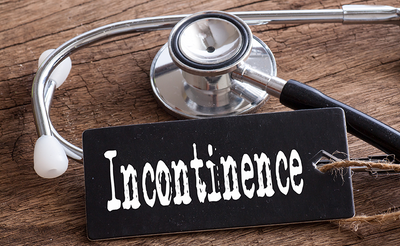Slipping Out Of Control
Adult men and women do not expect to pass even a few drops of urine, without wanting to. Most children develop bladder control between two and three years of age and manage to retain control throughout their adult lives. Those unable to do so are said to have developed Urinary Incontinence (UI), and it is much commoner than we think. While clear numbers are hard to come by, some studies indicate that UI could be as frequent as 15 percent of the entire Asian population, men, and women together!
The extent varies as well, from just a few drops that spill onto your trousers, or your inner wear, and that slight sense of everything not being okay, to actual wetting of your pants. Needless to say, spillage of a few drops is much more common than a more extensive leak.
Psychosocial Impact
The mental and psychological distress that UI can cause to a person affected with this condition can well be imagined. From people edging away from you at parties and social occasions to sheer contempt of your friends and colleagues, UI does enough to drive strong men and women into depression. Several studies have mapped out these consequences very precisely, and the common points are the ones we just discussed. The distress is much more if the spillage is the result of a severe cough or sneeze or even an abdominal exertion such as lifting a heavy weight.
Causes of UI:
The reasons why UI happens are legion; everything from spinal injury to diabetes mellitus has been implicated over the years. Primarily, bladder control in adults depends on proper functioning of the muscles and nerves in the pelvic region. Hence, any medical condition that damages the nerves in the urinary bladder and its surroundings are a potential cause of UI.
These include:
• Diabetes Mellitus
• Pregnancy and childbirth (difficult labour, injury to the perineal region, etc)
• Prostate disease and its treatment
• Spinal Injury because of accidents, slipped disc, etc
• Age-related weakness of nerves and muscles of the bladder region
• Cancer of the prostate, bladder, uterus, surrounding bones
• Treatment of cancer with surgery or radiation
In addition, some foods and medicines are known to weaken bladder control and should be avoided if necessary. One of the most important is alcohol in any form, particularly if you already have something known as an Overactive Bladder. Likewise, drinking too much tea, coffee, soft drinks with a lot of fizzes has been known to increase the urge to visit the washroom. While you may not be required to stop these beverages completely, it could be a good idea to reduce your consumption gradually, particularly if you can establish a clear connection between these drinks and your urge to go to the bathroom. The same thing applies to citrus fruits of all kinds, and most items with an acidic tang. In really severe cases of Overactive Bladder, even spicy foods are not recommended! However, the amount of spice you can tolerate in your food, without having to rush to the cloakroom, depends on you alone, and there is no harm if it takes a few attempts to find your own level of comfort.
Some medicines too
Quite a few medicines, that we might need to take for other ailments, can make it difficult to retain control over one’s urine. Among the commonest are a category of drugs for high blood pressure, known as diuretics. These are given for the express purpose of increasing the output of urine, and hence the urgency to go to the bathroom. Sedatives and antidepressants, some drugs for rheumatoid arthritis, and even commonly used medicines for that ordinary backache! So if you do think you have a problem, please consult your doctor and draw his attention to the medicines that some other physician may have prescribed. It is then his job to decide whether your medicines are making your condition worse or not.
Remedies for UI
Among the commonest remedies is the Kegel’s exercises which require you to deliberately exercise your pelvic floor muscles (that enable your bladder control) for three seconds and then relax for an equal amount of time. Doing this intermittently would usually improve your ability to control dribbling of urine or unintentional flow over a period of time. The Kegel’s exercises for men and women are slightly different and you can read more about them here.
Another trick that works, particularly in elderly men with prostate disease, is to drink your fill of fluids by about 6 pm and then avoid as much as possible. A third is to avoid citrus fruits such as oranges and lemons or at least reduce the consumption. The reason is that the acid content of these eatables can irritate the bladder and provoke the urge to pass urine!
Also available are adult diapers that work in much the same way as infant diapers, and serve a very similar purpose. So even if the exercises don’t help much, or the family insists on food that you have been advised to stay away from, there is no need to despair. Help is available, and usually at your neighbourhood chemist’s shop or specialized outlets that offer wheel chairs, and other health-related gadgets.





